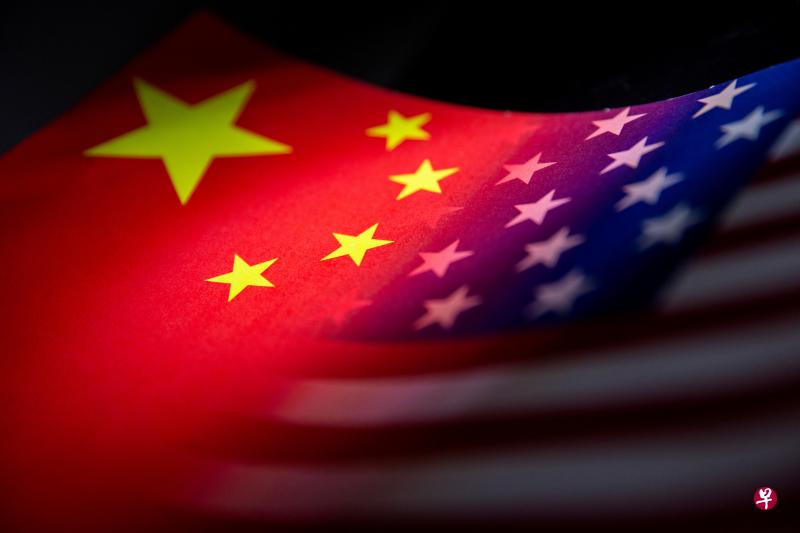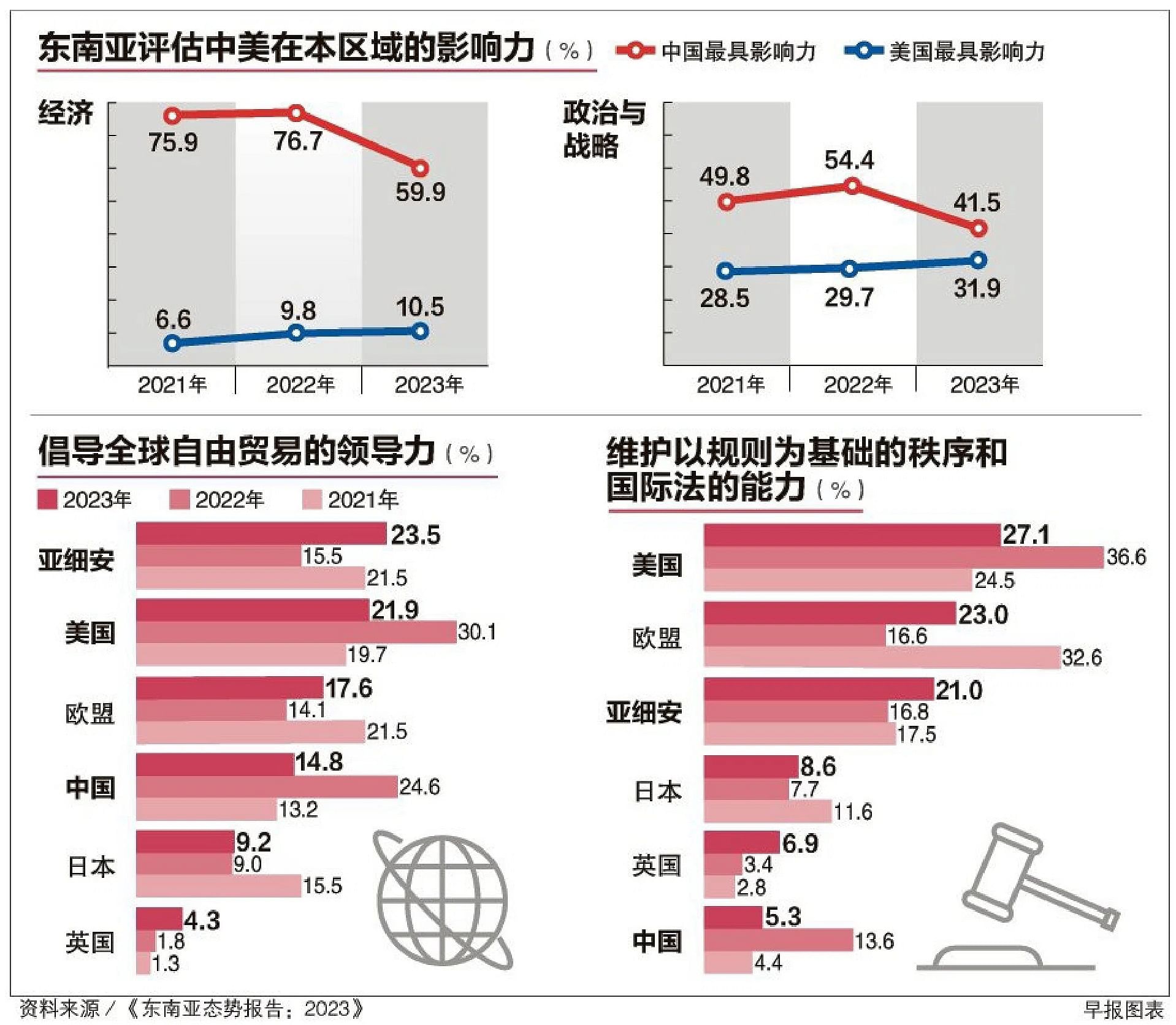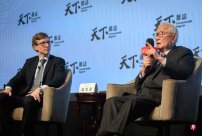
According to the Southeast Asian situation: 2023, it is believed that China has the greatest economic influence on Southeast Asia's economic influence from 76.7 % last year to 59.9 % this year; political and strategic influence;As the side, from 54.4 % to 41.5 %.The influence of the United States has risen slightly.
China and the United States continue to be the two countries with the largest influence in Southeast Asia, but the continuous deterioration of China and the United States has hit Southeast Asia's confidence in the leadership of the two countries.China ’s economic, political and strategic influence on Southeast Asia has fallen sharply this year; in the minds of the people of Southeast Asia, the status of the United States as the primary advocate as a free trade has also been replaced by Asians.
Singapore's Yusov Isa Eastern South Asian Research Center Ayanan Research Center issued a Southeast Asian situation report on Thursday (February 9): 2023, for the fifth consecutive year, the perception and trust of the Southeast Asian people on the Chinese and American people, as well as Southeast AsiaThe view of geopolitical topics is conducting polls.
A total of 1308 people completed the questionnaire survey from November last year to January this year. They came from the 10 countries, regions and international institutions, civil organizations, non -profit institutions, as well as academic, business and media people.
According to the survey, China has become the country with the greatest influence on the regional economy, politics and strategy for five consecutive years. However; Politics and strategic influence dropped from 54.4 % to 41.5 %.
The US's economy in Southeast Asia, as well as political and strategic influence, rose slightly by 0.7 percentage points and 2.2 percentage points, reaching 10.5 % and 31.9 %, narrowing the influence gap with China.
Deputy Director of the Institute of Policy Research in the Asian Association, and former US Advanced Trade negotiating representative Wendy Cutler analyzed at the forum held by the report conference.In the context of focusing on domestic politics, it has affected the evaluation of Southeast Asian countries on China's influence.At the same time, the United States has strengthened government and business activities in Southeast Asia, so the influence of the United States has risen and China's influence has declined.
China's economic growth has slowed significantly in the past year, and I believe it is also one of the reasons why China's influence has declined.Carter pointed out that China's economic growth will continue to slow down, which will promote Southeast Asian countries to find new partners and markets.
Xu Tongmei: Yaxian also hopes that China and the United States will be balanced in regional strength
However, Professor Xu Tongmei, the Ministry of Foreign Affairs of Singapore, pointed out at the forum that China is still the winner of Sino -US competition in Southeast Asia and a significant lead.He has therefore urged the United States to continue to increase its efforts to improve its economic and political influence in regional.
Xu Tongmei said that Ya'an actually hopes to see the balance of power in the region, and does not want to be dominated by a country, whether it is China or other countries."At present, China's influence in the region is too great, and the influence of the United States is too small. I hope to see the power of the two big powers to achieve a good balance."
The competition between China and the United States has risen rapidly in the past year, and Southeast Asia, which has high economic prospects, has become one of the crests of the two countries.China and the United States are more active with Southeast Asian countries, which has enhanced Southeast Asia's trust in the United States and China.It is believed that the United States and China can do "correct things" to maintain world peace, security, prosperity, and global governance.
But on the leadership, the interviewees' confidence in China and the United States has declined significantly.
Asia Qianan was first regarded as the primary advocate of global free trade
Interviewees who are confident in the leadership of the United States advocating regional free trade have decreased by 9.5 percentage points compared with last year, and those who have confidence in China are 9.8 percentage points.The ranking of the United States in this option has fallen from the first year last year to the second, and China's ranking has dropped from second to fourth.On the contrary, in the survey of this year, Ya'an was the first to be the primary advocate of global free trade.
In terms of maintaining rules -based order and maintaining international law, although the United States continues to rank first this year, the most confident interviewee for the United States has reduced 8.2 percentage points compared with last year.China's ranking drops from fourth to sixth.
TheReport believes that the relatively rising confidence of Southeast Asian countries in Asianan and other medium -sized countries is related to the effectiveness of the regional comprehensive economic partnership Agreement (RCEP) and more enterprises to transfer their business from China to Southeast Asia.
 />
/>


